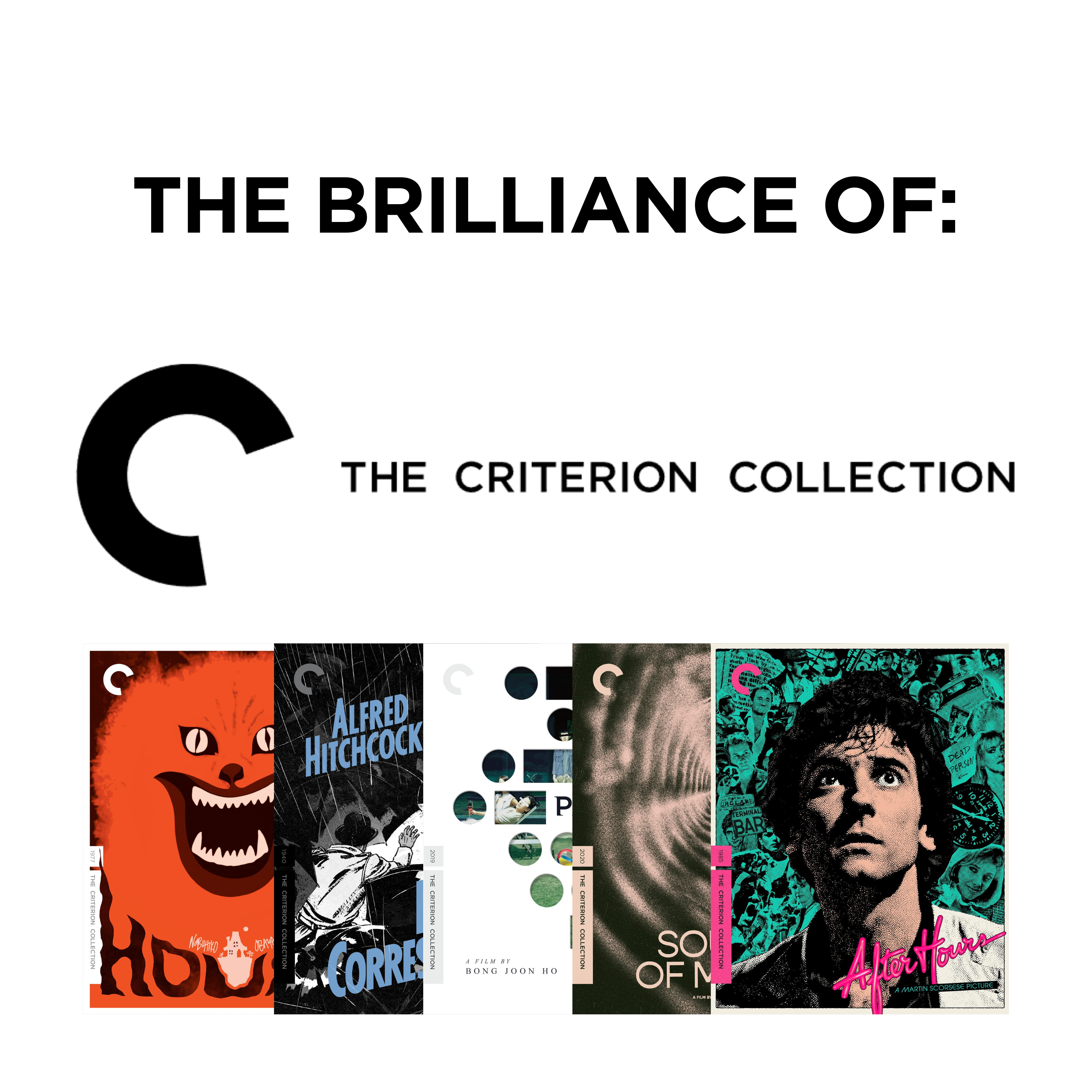Please visit response.fsu.edu for official FSU updates and resources.
My Obsession: The Brilliance of the Criterion Collection

Growing up, I was always obsessed with collecting things. At first, it was toy cars. If there was a toy car to be had, I had it. As a three-year-old, I wouldn’t even race them or play with them, I would simply line them all up next to each other just to see them all together. Next, it was dinosaur toys, and once again, I would collect them simply to display them for myself. As I got older, of course, I had a Funko Pop phase, but it quickly dissipated as time moved on. However, the one thing that has remained consistent ever since my obsession with collection has started is movies. Beginning in 2015 with my very first Blu-Ray Interstellar, I now have over 200 movies in my physical collection and counting. I’ve been invested in physical media for some time now, but only within the past few years did I learn about the Criterion Collection: A company that focuses on curating the best films from around the world and packaging them purposefully alongside the original creatives’ intent.
Once I learned about the Criterion Collection: It was game over. A company that literally specializes in putting out the very best, most high-quality versions of great films on physical release was destined to be my new obsession. But what fascinates me the most about Criterion is not just obtaining their beautiful releases in mass buying sprees, but the process behind how their releases come to be.
First, they must obtain the rights to whichever film they’re looking to release. Take Bong Joon-Ho’s Palme D’or and Best Picture Winning Film Parasite for example. Criterion has a partnership with the film’s production company, “NEON,” that allows them to have access to their films’ rights instantaneously without having to go through extra steps.
Then, once the rights are obtained, they begin working on the restoration process. With newer films, this process is as simple as a new 4k upscale of the film. The older the film are, the more complicated things become. Take Alfred Hitchcock’s 1934 release of The Man Who Knew Too Much for example, the original film negative had to be tracked down by Criterion and obtained in order to do a full restoration for a first-time physical release of the film. Once the negative was obtained, the technology required to successfully transfer the damaged film to digital actually didn’t yet exist, so Criterion had to wait until the British Film Institute invented a new transfer system.
Once the proper transfer system was created by the British Film Institute, the original negative had now been properly transcribed into digital, and it was time for the restoration process to begin. This included digitally removing scratches and dirt from the film’s negative copy, as well as fixing over-exposure in lighting and “clipping” in audio, which refers to an overabundance of unfiltered noise in a film.
The third and final step of a Criterion release is the making of their famed artwork and special features. With Criterion innovating the home release in the mid-1980s, they’re actually credited with the invention of the Director Commentary we’re so familiar with today on home releases. Criterion prides themselves on their illustrative special features, which include video essays, behind-the-scenes footage, interviews, a critical written essay, and of course various commentaries. These are all directors approved for the release, as well as the eventual cover art.
Criterion takes pride in their cover art, as the final cover is created to keep in line with the filmmakers’ original visions to the best of the artist's ability, whether that be a film still from the movie or a completely original piece of artwork. Some of the best covers in my opinion include Sound of Metal, House, Foreign Correspondent, and After Hours.
I now own six Criterions in total, and with the bi-annual Barnes & Noble sale coming to an end, and with Christmas right around the corner, who knows how many more I might have by the end of the season! But, regardless of whether you’re on your sixth or sixth-hundredth Criterion, I implore you to continue supporting the amazing work of this business, and to keep championing the preservation of the physical release!
Writer: Christopher Robertson
Artist: Christopher Robertson



